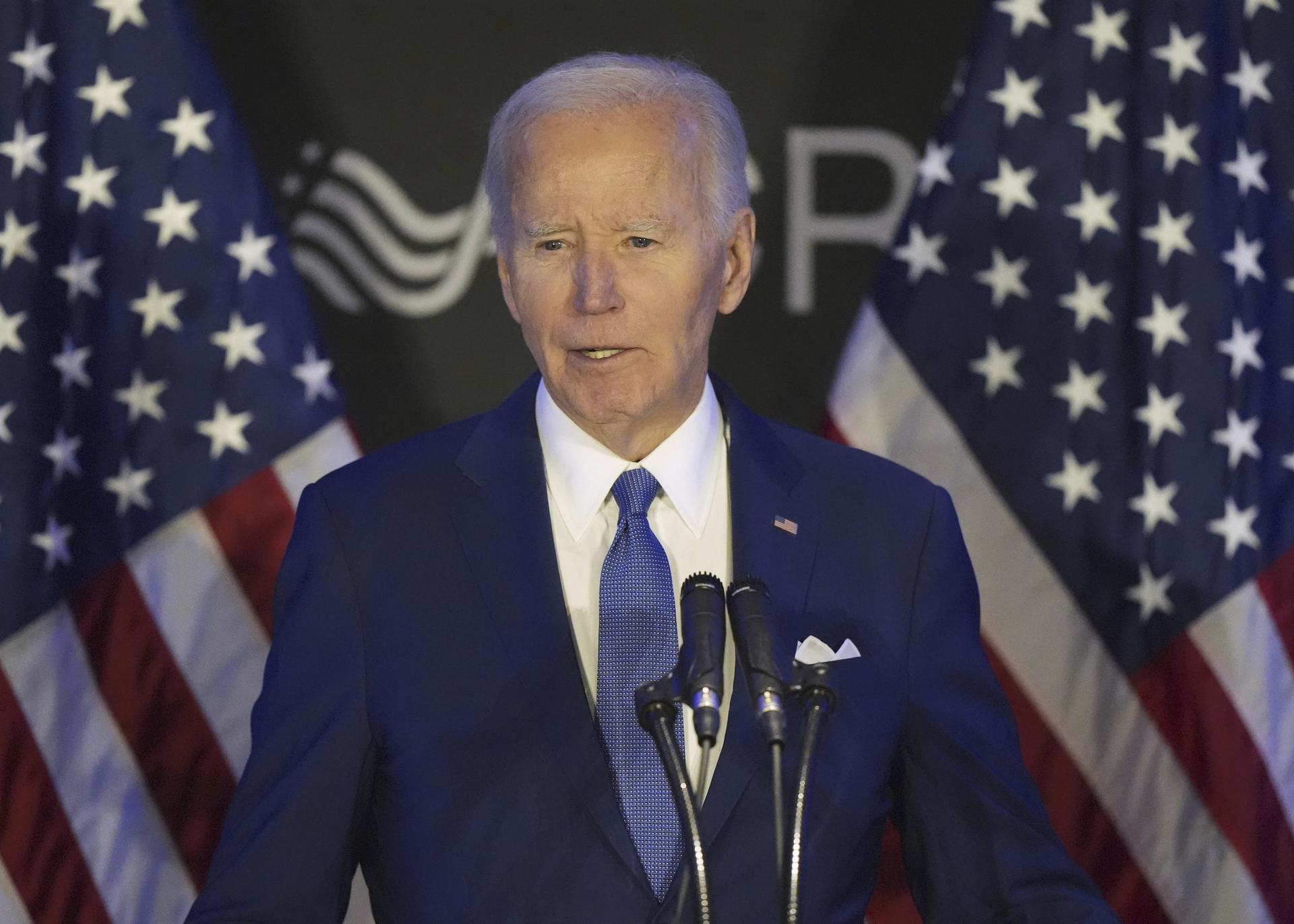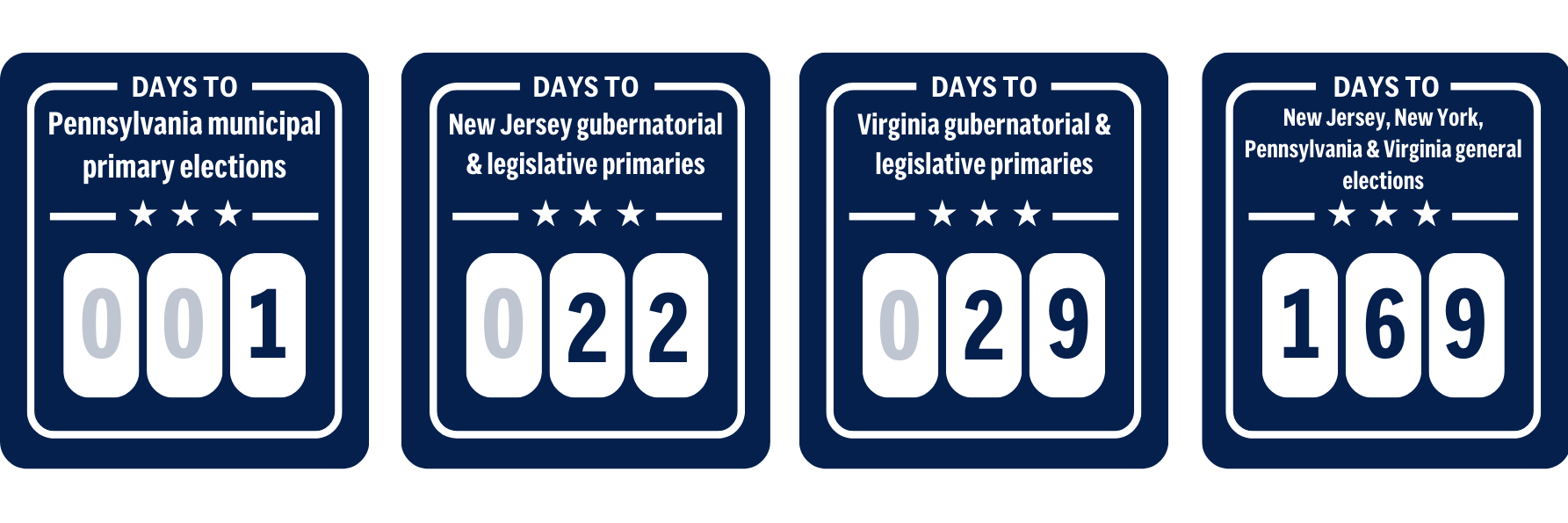Former President Joe Biden has been diagnosed with prostate cancer, his office said Sunday. Biden’s office said the former president and his family are “reviewing treatment options with his physicians.”
Welcome to this week’s edition of AP Ground Game. |
Policy changes, but facts endure. AP delivers accurate, fact-based journalism to keep the world informed in every administration. Support independent reporting today. Donate. |
Former President Joe Biden speaks at a conference in Chicago, April 15, 2025. (AP Photo/Nam Y. Huh, File) |
Joe Biden diagnosed with aggressive prostate cancer |
Biden was seen last week by doctors after urinary symptoms and a prostate nodule was found. He was diagnosed with prostate cancer on Friday, with the cancer cells having spread to the bone. His office said Biden's case "represents a more aggressive form of the disease.”
Prostate cancers are given a score called a Gleason score that measures, on a scale of 1 to 10, how the cancerous cells look compared with normal cells. Biden’s office said his score was 9, suggesting his cancer is among the most aggressive.
The health of Biden, 82, was a dominant concern among voters during his time as president. After a calamitous debate performance in June while seeking reelection, Biden abandoned his bid for a second term. Then-Vice President Kamala Harris became the nominee and lost to Republican Donald Trump, who returned to the White House after a four-year hiatus. Read more.
|
|
|
Of note:
In recent days, Biden rejected concerns about his age despite reporting in the new book “Original Sin” by Jake Tapper and Alex Thompson that aides had shielded the public from the extent of his decline while serving as president. |
|
|
Trump could leave less documentation behind than any previous US president |
For generations, official American documents have been meticulously preserved and protected — from the era of quills and parchment to boxes of paper to the cloud, safeguarding snapshots of the government and the nation for posterity.
The Trump administration has sought to expand the executive branch’s power to shield from public view key administration initiatives, with officials using apps like Signal that can auto-delete messages containing sensitive information, rather than retaining them for record-keeping, and shaking up the National Archives leadership. To historians and archivists, it points to the possibility that Trump will leave less for the nation’s historical record than nearly any president before him. That creates a conundrum of how to later piece together what occurred.
The Trump administration says it’s the “most transparent in history,” citing the president’s fondness for taking questions from reporters nearly every day. But historians caution that isn’t the same as keeping records that document the inner workings of an administration.
After his first administration, Trump hauled boxes of potentially sensitive documents to his Florida estate, which the FBI later raided. A case was later scrapped. Read more. |
|
|
Of note:
There have been previous records clashes. President George H.W. Bush’s administration destroyed some informal notes, visitor logs and emails. After President Bill Clinton left office, his former national security adviser, Sandy Berger, pleaded guilty to taking copies of a document about terrorist threats from the National Archives.
President George W. Bush’s administration disabled automatic archiving for some official emails, encouraging some staffers to use private email accounts and losing 22 million emails – though they were later recovered. Congress updated the Presidential Records Act in 2014 to encompass electronic messaging, but back then, use of auto-delete apps like Signal was far less common. |
|
|
Trump's tussles with the courts could lead the nation into uncharted waters |
Tucked deep in the thousand-plus pages of the multitrillion-dollar budget bill making its way through the Republican-controlled U.S. House is a paragraph curtailing a court’s greatest tool for forcing the government to obey its rulings: the power to enforce contempt findings.
It’s unclear whether the bill – which failed in a committee vote Friday – can pass the House in its current form, whether the U.S. Senate would preserve the contempt provision, or whether courts would uphold it. But the fact that GOP lawmakers are including it shows how much those in power in the nation's capital are thinking about the consequences of defying judges as the battle between the Trump administration and the courts escalates.
The most intense skirmishes have come in the lower courts. One federal judge has found that members of the administration may be liable for contempt after ignoring his order to turn around planes deporting people under the Alien Enemies Act of 1798. Trump's administration has scoffed at another judge’s ruling that it “facilitate” the return of a man wrongly deported to El Salvador, even though the Supreme Court upheld that decision.
In other cases, the administration has removed immigrants against court orders or had judges find that the administration is not complying with their directives. Dan Bongino, now Trump's deputy director of the FBI, called on the president to “ignore” a judge’s order in one of Bongino's final appearances on his talk radio show in February. Read more.
|
|
|
Of note:
The rhetoric obscures the fact that the administration has complied with the vast majority of court rulings against it, many of them related to Trump's executive orders. Trump has said multiple times he will comply with orders, even as he attacks by name judges who rule against him. |
|
|
President Donald Trump shakes hands with Yousif Al Obaidli, director of Sheikh Zayed Grand Mosque, during a tour of the Sheikh Zayed Grand Mosque, Thursday, May 15, 2025, in Abu Dhabi, United Arab Emirates. (AP Photo/Alex Brandon) |
- Trump has said he will speak Monday with Russian President Vladimir Putin.
|
|
|
|








